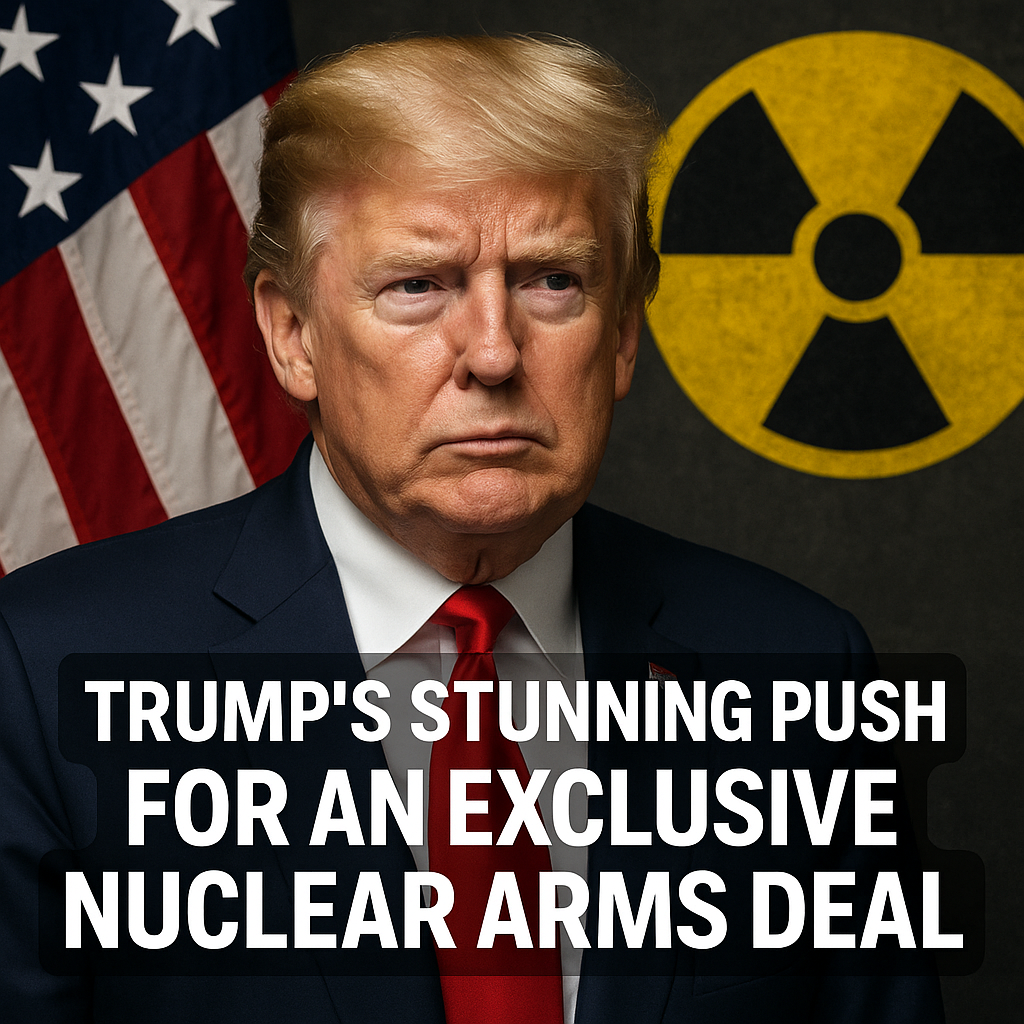Trump’s Stunning Push for an Exclusive Nuclear Arms Deal
Trump’s Stunning Push for an Exclusive Nuclear Arms Deal
Trump’s recent proposal for an exclusive nuclear arms deal has ignited discussions across political, military, and diplomatic arenas. The implications of such a move reach far beyond mere international relations, raising questions about security, trust, and global governance.
Context of the Proposal
Former President Donald Trump has long been known for his unorthodox approach to diplomacy. His latest initiative suggests a return to talks regarding nuclear arms limitations, specifically tailored to include the United States, Russia, and China, effectively sidelining other nuclear powers and non-proliferation treaties that have been a cornerstone of global stability.
According to a report from RT News, Trump emphasized the need for a “great deal” that would not only reduce the nuclear stockpiles of these three superpowers but also address the growing tensions surrounding military capabilities. This comes at a time when stalled negotiations and rising geopolitical tensions have left many experts questioning the efficacy of existing arms control agreements.
Contrasting Views on the Deal’s Viability
While Trump’s proposal has been met with some enthusiasm from his base and certain geopolitical analysts, there is significant skepticism from various sectors, particularly within the security community. Critics argue that without a broader international framework, negotiating an exclusive deal with only Russia and China may not foster the desired trust or security.
Al Jazeera reported that many experts caution against a bilateral approach, stressing that including countries like India, Pakistan, and North Korea is crucial for comprehensive nuclear disarmament. The argument is that limiting talks to just three nations undermines the collective commitment to nuclear non-proliferation, potentially emboldening other nations to expand their nuclear arsenals if they perceive a divide among the major powers.
Benefits and Risks of an Exclusive Approach
Potential Benefits:
– Focused Negotiations: An exclusive deal may streamline discussions and expedite agreements on nuclear disarmament, making it easier to achieve immediate goals.
– Strengthening Strategic Alliances: By bringing together the U.S., Russia, and China, there is potential for creating stronger strategic relations amongst these powers, which could lead to greater nuclear stability in the long run.
Risks:
– Erosion of Existing Treaties: This approach might undermine decades of work that have gone into broader treaties such as the Non-Proliferation Treaty (NPT), which has encouraged multilateral cooperation in nuclear disarmament.
– Increased Tensions with Other Nations: Nations not included in the discussions may feel threatened and thus may accelerate their own nuclear weapons programs, escalating global tensions rather than alleviating them.
The Role of Bipartisan Considerations
Although Trump’s pitch for a nuclear arms deal aligns with his “America First” ethos, it raises complex bipartisan considerations. Political leaders from both parties will need to weigh the immediate benefits of such an exclusive pact against the long-term consequences it may have on global peace and security.
According to analyst commentary featured in Sky News, experts argue that any inkling of a unilateral decision could reignite a nuclear arms race between the U.S. and its Russian and Chinese counterparts. Meanwhile, allies in NATO and other alliances may feel alienated or undermined if they perceive a shift toward isolationism.
Navigating Uncertain Waters
While Trump’s call for an exclusive nuclear arms deal is ambitious, it operates within a highly complex web of international relations where trust is tenuous. Furthermore, the political ramifications of such a proposal loom large with a presidential election approaching. Whether this initiative will gain traction or fall into obscurity remains to be seen, but it certainly has sparked a renewed focus on the importance of arms control—however complicated it may be.
The conversation surrounding the future of nuclear arms initiatives is stepping back into the limelight, reminding us that the stakes are not only limited to military strategy but also the very fabric of international diplomacy and global stability. Moving forward, it will be essential for policymakers and analysts alike to closely monitor the developments arising from Trump’s extraordinary push and consider its broader implications for world peace.




































